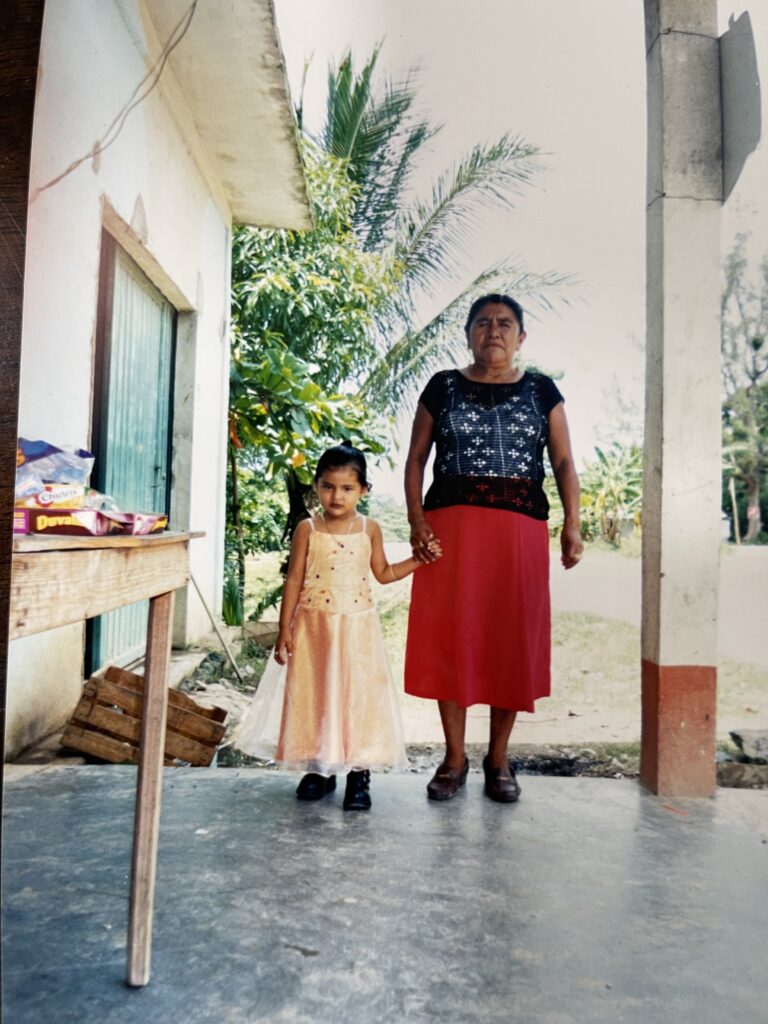At the age of four, my father came back to visit me in the small town of Boca del Monte, Oaxaca, Mexico. He told me we were going to go see my mom, who I hadn’t seen in almost two years. A few days later, carrying only a bag with our belongings and enough food to survive the trip, we began the trip to el Norte. At night, my dad would carry me on his back while I whimpered in fear, the coyotes warning him that if Border Patrol heard me, we would all be screwed. He would plead with me to stop crying, and I’d say, “I wanna stop crying but I can’t.” I remember the quiet tension on the truck ride to Arizona as I sat at my grandma’s feet, all 12 people silently praying that after a week of traveling, we wouldn’t get caught. We had finally arrived to America, but at what cost?
Currently, there are millions of people in the United States with similar stories. In 2012, President Obama enacted the Deferred Action for Childhood Arrivals program, more commonly known as DACA, after Congress failed to pass the DREAM Act. This program allows these Dreamers, as they are known, to work legally in the United States, get a driver’s license, and obtain a social security number. Currently, there are over 1.6 million undocumented immigrants who came to the U.S. before their 16th birthday (one of the many qualifications for DACA). In October of 2017, Donald Trump announced that the DACA program would be rescinded, giving Congress until March 5th of 2018 to come up with a solution. It has been more than a year since that announcement was made, and DACA remains in legal limbo. As a Dreamer, I live in uncertainty, with the fear that at any moment my life will be turned upside down. Our livelihoods are in jeopardy and our status in this country is at risk. Advocating and pushing for comprehensive immigration reform is imperative, since a lack of a real solution would not only harm immigrants but it would also be devastating to the American economy. Although DACA is by no means perfect, any solution is better than no solution at all.
As a temporary solution, DACA has become an oasis for those who previously had no legal presence in this country. It provided a renewable two-year work permit, which allowed them to get a social security number and thus a job and, in many states, allowed them to obtain a driver’s license. At least in the short term, DACA has reduced some of the challenges that undocumented young adults must overcome to achieve economic and social incorporation. Having a social security number allows them to open a bank account and build credit. For those who find full time jobs, they also have access to healthcare, paid time off, and better working conditions.
Rescinding DACA without anything to replace it with would be a major blow to the American economy. Fortune Magazine states that the economy would miss out on a whooping $280 billion if the government were to rescind DACA and deport the nearly one million immigrants that qualify for it[1]. Another report, published by progressive advocacy group Center for American Progress, found that repealing the program could cost the U.S. $460.3 billion in economic output over the next decade, and that contributions to entitlement programs like Medicare and Social Security could drop by $24.6 billion[2]. Just in Georgia, which has 24,000 Dreamers, annual GDP loss from removing DACA workers would be 1 billion dollars. The majority of the immigrants that qualify for DACA are educated and productive, and removing them from the labor force would make it harder for employers to find highly skilled workers. Overall, the economy would be negatively impacted because there would be less workers to churn out products and services.
Currently, there are multiple bills aimed at fixing our broken immigration system. Unfortunately, the bill endorsed by Donald Trump would eliminate the diversity visa program and important asylum protections, and would allocate $23 billion to fund the border wall, all without giving Dreamers a clear path to citizenship. We must continue to fight for a “clean” Dream Act, which is one that isn’t tied to funding for a wall or a reduction in legal immigration. Dreamers are not a bargaining chip; we will not sell out our parents and other immigrants who are struggling with the same situation in order to fast track a path to legalize our status. The American immigration system is broken, and the only way to achieve comprehensive immigration reform can only be through changes in the nation’s immigration policy. It is unlikely that any change can happen unless those who can vote speak up for those who cannot. According to the Center for Information and Research on Civic Learning and Engagement, in 2016 only 50% of eligible voters aged 18-29 showed up for the presidential elections[3]. This past election was a wake-up call, and a reminder of what can happen when citizens don’t exercise their right to vote.
Currently, America is at a crossroads. The lives of more than one million Dreamers are in limbo, not to mention the almost 11 million undocumented immigrants who live in constant fear of being deported. Losing DACA would majorly impact people who have always called the U.S. their home, apart from negatively impacting the economy. However, immigration reform shouldn’t just stop at DACA. Legalizing Dreamers is one solution, but there has to be a plan to address the status of immigrants who despite all odds, have lived for decades in the United States as law abiding citizens despite their supposed “illegality”.
When I crossed the border with my dad and my grandma I didn’t really understand the magnitude of such a decision until years later, when I realized that, because of my status, I couldn’t do a lot of things other people took for granted. I never imagined that I would have to live in constant fear that my parents would be taken from me. But despite everything, despite the struggles and the fears of the millions of us “illegal aliens”, we’ve learned to thrive in unfavorable circumstances, and we are here to stay.

[1] Abramson, Alana. “Here’s How Much Money Rescinding DACA Could Cost the U.S. Economy.” Fortune, 6 Sept. 2017, fortune.com/2017/09/05/daca-donald-trump-economic-impact/.
[2] Svajlenka, Nicole Prchal, et al. “A New Threat to DACA Could Cost States Billions of Dollars.” Center for American Progress, 21 July 2017, www.americanprogress.org/issues/immigration/news/2017/07/21/436419/new-threat-daca-cost-states-billions-dollars/.
[3] “An Estimated 24 Million Young People Voted in 2016 Election.” THE CENTER FOR INFORMATION & RESEARCH ON CIVIC LEARNING AND ENGAGEMENT, Tufts University, 9 Nov. 2016, civicyouth.org/an-estimated-24-million-young-people-vote-in-2016-election/.
